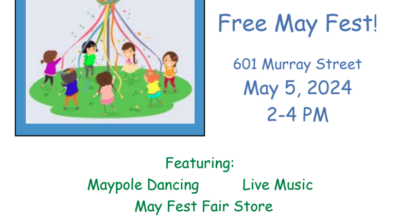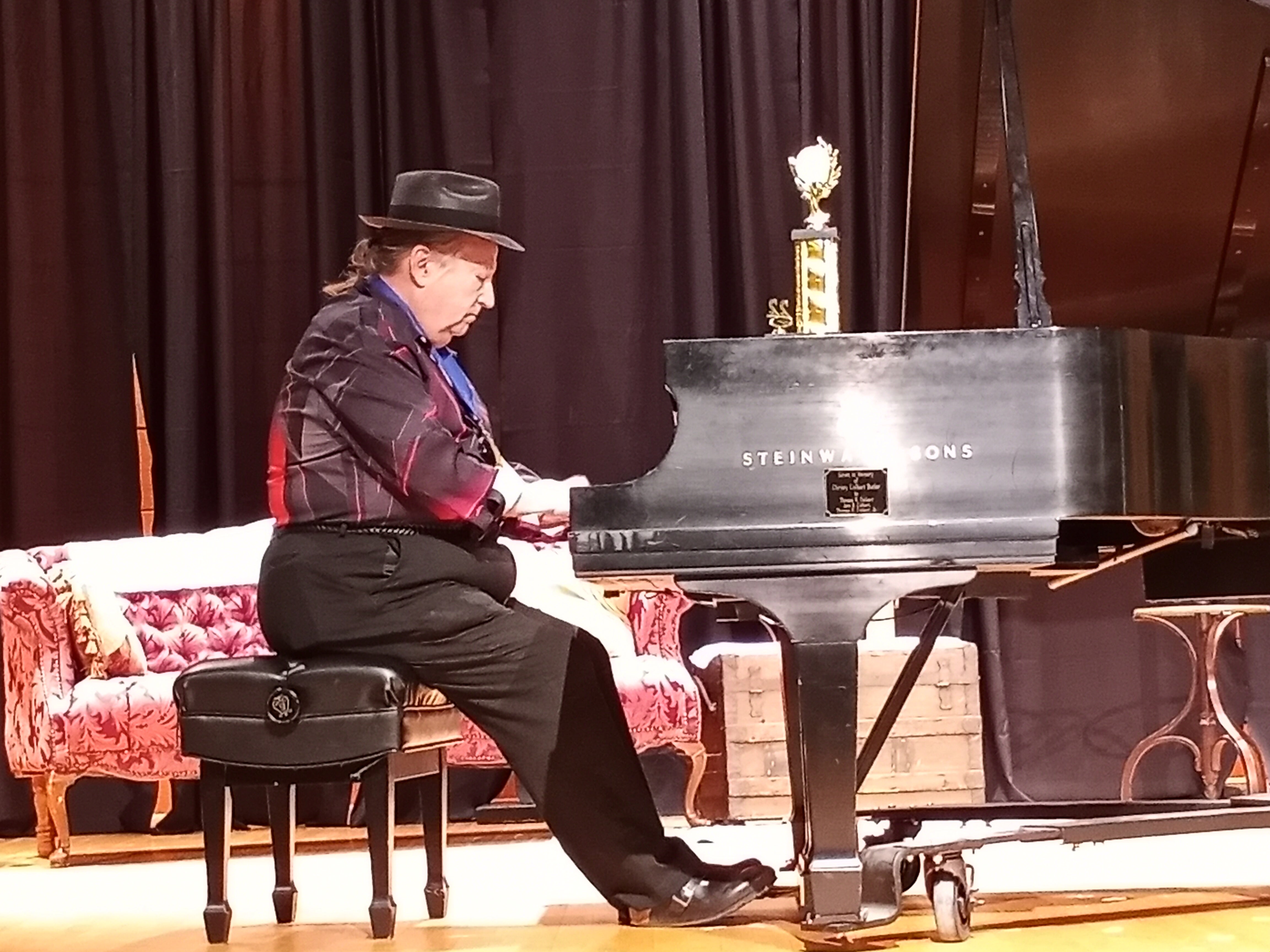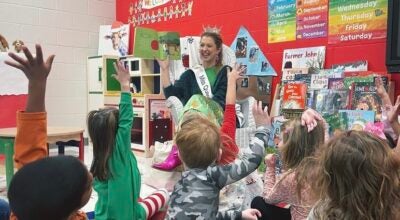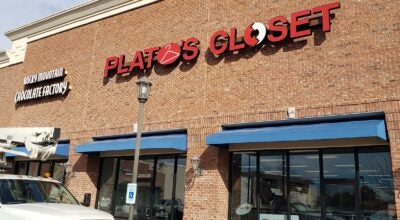Rural Legal Services celebrates 50 years
Published 12:00 pm Friday, January 15, 2016
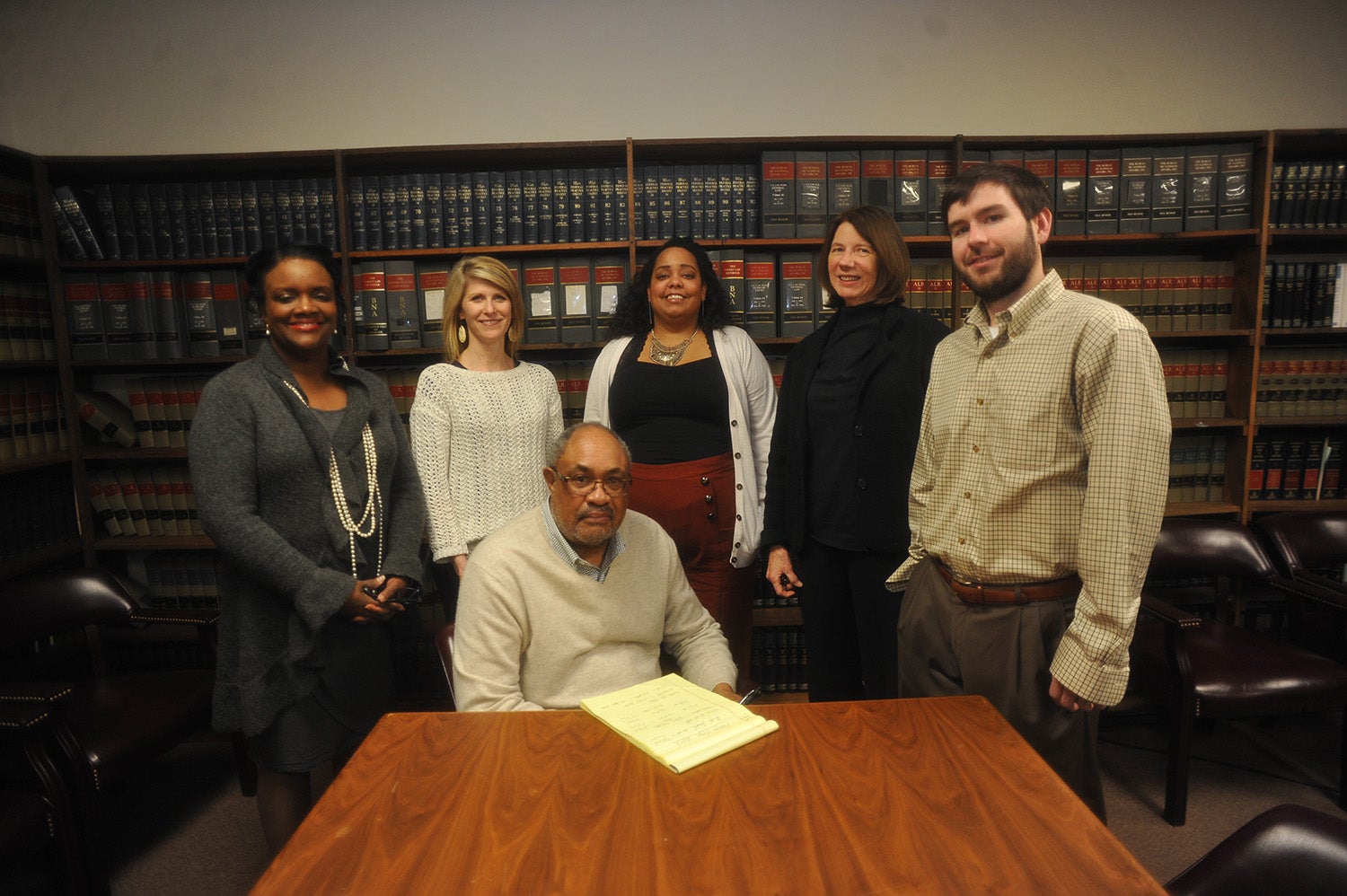
- Ben Thomas Cole, sitting, and standing, from left, Ethel Gilmore, Priscilla Grantham, Alexis Farmer, Catherine Kilgore and Ben Wilkerson are part of the North Mississippi Rural Legal Services team in Oxford celebrating 50 years of service.
In the past 50 years Mississippi has seen the civil rights movement, advances in employment opportunities for people of all lifestyles, an economic downturn and a society that has become more litigious.
Through it all North Mississippi Legal Services has been on top of the game, helping poor and low-income Mississippians who need legal representation and offering more and more services as the years go by.
Ben Thomas Cole, executive director of NMRLS, is one of the longest-serving members of the nonprofit, having worked as a managing attorney of the then-Holly Springs office from 1976 to 1983 before coming to the Oxford administrative branch in 1999. He said while the mission hasn’t changed, the programs and funding certainly has.
“We provide free civil legal services for low- to moderate-income people, and for the most part that’s for people whose income is up to 125 percent of the federal poverty guideline,” he said. “Our major funding comes from the national Legal Services Corporation. Congress appropriates funding LSC, then LSC makes grants to grantees in each state.”
In Mississippi there are two grantees, North Mississippi Legal Services, which serves the northern 39 counties of the state, and Mississippi Center for Legal Services, which serves the remaining 42 counties of the state.
NMRLS for 2016 received $1.6 million from LSC, which combined with other smaller grants made the entity’s total budget $2.6 million. Those funds, combined with 32 employees, 13 lawyers and hundreds of volunteers, whether they are attorneys, students or a regular resident, serve the 39 counties.
There are four offices currently: Clarksdale, Greenville, West Point and Oxford.
There used to be many more offices, but the agency has encountered cutbacks in funds and staffing, particularly in 1980 and 1996.
“When you look at the history of the organization, it actually started with the law school in 1966 and it grew from there,” Cole said. “At that time back in 1966 there was no federal funding for legal services for the poor. The first funding started from the office of OEO and lasted about two years. After that in 1974 Congress set up the national Legal Services Corporation. In 1974, that became the sturdy federal funding for legal services. The federal funding was appropriated in 1974, and the goal at that time was to set up at least one legal services program in every state to serve every county in every state.”
How funding arrives
Congress requires funding to be determined based on the number of poor people in the area. First Congress comes up with a monetary figure to allocate nationwide, then divides it by the number of poor people to get a dollar amount per person. Then it looks at census data and determines how much a state agency gets.
There was a $172,000 cut for 2016 based on the census. The number of poor people nationally grew, but it didn’t grow at the same rate in Mississippi, so less funding came to the state.
“There’s over 240,000 people that are eligible for representation within these 39 counties and there’s been a study that has shown that most poor people will have somewhere around two legal problems per year,” Cole said. “So with 13 lawyers and even with private lawyers doing cases for us, we still turn away at least one client for every person we accept.”
For a family of four, the 125 percent poverty level means an income of about $29,000 per year.
How do poor people have legal problems?
“It could be something like a divorce,” Cole said. “Let’s say for example a person may be in a domestic violence situation, and that person needs protection from domestic violence. Then they might need to get a divorce, and there might be child custody issues that arise from that. Visitation issues that arise from that. So from out of one basic scenario you could have several.” Cole said.
Catherine “Jenny” Kilgore, director of elder law and an adjunct professor at University of Mississippi, continued the scneario.
“Then they are about to lose their house through foreclosure and then we have to try to preserve the home. The priorities are to the home, preserving the family income, the family itself, and children, keeping the family safe.”
Expanding everything
“We have expanded the scope of our services, out of necessity,” Cole said.
The group started working with the American Bar Association to encourage private lawyers to volunteer and give back to the legal profession and NMRLS founded the Mississippi Volunteer Lawyers Project. The MVLP recruits private lawyers to handle cases on a pro bono basis, for free.
“Also we have another program called a low-fee program where we have some lawyers who will handle cases on a low-fee basis, such as bankruptcies,” Cole said. “They take it on our behalf and we pay them a low fee. The client does not pay a fee. But for us to encourage private lawyers to help us and to expand the services that we can provide, we will pay them a small amount of their normal fee. That partnership with the private lawyers substantially supplements what we are able to provide in services to the clients.”
In 2014, NMRLS handled more than 8,000 cases, which Director of Development Ethel Gilmore said equates to helping 17,916 individuals. Cole said 2015’s figures are in the same ballpark.
“We really try to help the poorest of the poor, because generally these are the people who would not be able to get legal representation from any other place,” Cole said. “We get some people who are so poor they are not able to make a monthly payment on attorney’s fees. If Legal Services were not here, they would not receive legal representation and you have a lot of instances where people actually go into court unrepresented and that slows up the legal process.”
Also increasing is participation the past seven or eight years from the University of Mississippi’s students.
“A lot of them choose to come here and work with our clients and get hands-on experience,” Cole said.
Law school work
Al Cutturini, an attorney and adjunct professor, works intensely with the volunteer students at NMRLS and said their participation is crucial.
“Usually we have maybe five or six law students a semester and then we have undergraduate students, and then we’ve had high school students volunteer during the summer,” he said. “They just came in and asked what they can do for a couple weeks, and we have work for them. We find work for them. You don’t have to be a lawyer to do it. Obviously it’s helpful if you’re a law student — you can do more — but we have work for anybody.”
He said some semesters there are so many volunteers, they get sent out to the branch offices. Other times everyone is fighting to get their help.
“They get a great experience,” he said. “They work with the attorneys, the staff, the law students can come to court with us and everybody can interview clients and collect documents and things like that, so it’s quite an experience.”
The University of Mississippi School of Law Clinical Program is celebrating its 25th year of involvement this year.
“Kinda like having a driver’s permit, they’re sworn in for limited practice, and they have an experienced attorney working with them,” Kilgore said. “They are a great help. They work with us all semester and take on responsibilities.”
On the ground
One way the law school students help out is when NMRLS goes out into the community and gets hands-on.
Two adjunct professors and a street law professor help lead the on-the-ground teams.
Kilgore said six smaller grants from six planning and development districts in the northern half of the state (like Three Rivers), originate in Washington in the Elder Americans Act and help ensure the elderly population is more educated and protected.
“The street law clinic goes to the food pantry every week,” she said. “People have legal problems, and they talk to the students and then they follow up with a professor.”
With elder care, Kilgore said their work involves more going out in the communities.
“We may pack up and go to Corinth for what we call Write a Will Day or we may do something in Cleveland. We go to different sites like senior centers and sometimes a local community center, wherever the go-to place is in that town,” she said. “We do will interviews, help people with end-of-life documents and Medicare, Medicaid, health law counseling, that kind of thing. The students get to go into the community and meet with people.”
Sometimes, in a necessary situation, they will go into someone’s home to help with documents.
“It’s been very helpful to our clients,” Kilgore said. “I also think it helps sensitize the students to the legal problems of the poor, the frail, the elderly. Elderly often have problems because of their frailty. It’s a kind of training they wouldn’t get otherwise.”
Preventative law
Helping with wills and teaching the elderly about health services, from NMRLS’ unbiased and neutral view, is an important service to an individual, Kilgore said.
“My focus on the elderly in the last 15 years has been important to help older people maintain their homes, food, clothing, shelter, access to health care, and we are often involved in the kind of work that helps prevent elder abuse and exploitation,” she said.
Kilgore said the elder law program does between 25 and 50 community education programs every year, and the foreclosure prevention project does about the same number. The taxpayer assistance project handles a large number as well.
“We do a lot of preventative law — helping the community, that’s kind of hard to measure,” she sad.
Cutturini said preventative services is the direction he sees NMRLS headed, particularly with housing, which he has dealt with for a handful of recent years.
“We offer legal services for all these different topics, but if we can stop them before they get to where they need the legal services, to me I think it’s the way things are heading,” he said. “It’s going to be more education out in the field doing this and I think that we’re moving towards that as Legal Services because we have to confront things before they get too bad, especially with the housing crisis.”
There are people who may be 30 to 90 days away from foreclosure and can’t take on Wells Fargo or Bank of America on their own, and NMRLS can step in and get the process halted and give advice for keeping a home.
“We can stop a foreclosure, get them back into their house, stop the debt collection against them, there’s numerous things, but people don’t know until you go out and tell them,” Cutturini said. “Once we tell one person they go back and tell their family and that’s really how the word gets out. It really has to get deep in the community, and that’s what we try to do on these outreaches.”
Want to call first or go online?
NMRLS has kept up with the times and employed the use of technology, including a call center and an online service element.
“Many of the people who are not living in an area where a branch office is can get their case resolved through brief service and advice on the telephone. We have the call center open Monday through Thursday, 9:30 to 3:30. It’s a big help to people to keep them from having to travel to an office,” Kilgore said. “Obviously with four offices to serve 39 counties and as rural as Mississippi is, we want to try to make it as easy as possible for people to reach us for our services.”
The nonprofit does have to do intake income and asset screening, so the call center can save someone a 100-mile round trip to get qualified and get some brief advice before ever hitting the road.
“There are a lot of issues people have that basically that’s what they need — some legal advice and legal information and a lot of cases will resolve at that level. But in reality there are others that need extended service,” Kilgore said.
“There is also online intake, a website where they can go in and input. We want to try to make it as easy as possible for people to get into the program. Now we’re trying to use technology.”
But it’s often the poor and elderly who do not have access to phones and technology, which is why Kilgore and Cutturini said reaching out is crucial.
NMRLS helping change world
Cole said when NMRLS first started out, the group did a lot of divorces and the judge would set up a block of time, even if it was a full day, for them. As a lawyer starting out he would try to help as many people as he could. Now his role is different as director.
“I view my role as trying to increase the resources of our organization to try to provide more staff to try to do more to help people,” he said. “I think in that way I am at least indirectly responsible for getting resources and providing attorneys and putting them in a position where we can multiply the number of people we are able to assist. I feel like I’ve made a difference as opposed to being an attorney and churning out the number of cases that I could myself. I see my work as multiplying the benefits for poor Mississippians.
“We now are working with the Young Lawyers division of the Mississippi Bar Association to provide disaster legal assistance to those who have been affected by the tornadoes. We try to be on top of legal needs and issues as they arise.”
Kilgore started in 1978 as a staff attorney, became a managing attorney and now is the elder law project director. She said she is excited about how far the world has come, and NMRLS has helped with that transformation in North Mississippi.
“In the beginning years I was doing a lot of employment discrimination work. There were no blacks working anywhere on the Square, in any bank, in any law office. There was one person at the federal district court. Nobody at the police department,” she said. “We had a big part in kind of helping to change the landscape during that time.
“You stop to think about how the changes that are occurring right now throughout the world have been so violent. There was some violence during those years, but by and large the system worked. We made progress and we were part of that and I feel very good about that. I think there are also other positive forces in this area that had a lot to do with that just in the private sector. But I feel that we served the community well. As time has gone on I think what we do is still very important.”
Gilmore said with the 50th anniversary celebration coming up Jan. 21, it is important to find these attorneys who have made such an impact and watch the world change. She said they need to be recognized for the impact they have made.
“We started this in the ’60s in the height of the civil rights era and a lot of the cases that were very instrumental during that time came through our offices,” she said. “You think about the impact that we have made, the impact is not just from one generation.
“It’s been through several generations just through the litigation that happened in the ’60s. So we have made a tremendous impact. Along with that in the ’60s with the focus being on civil rights, now we serve people of all races, genders, lifestyle preferences and it’s just a very diverse population of people that we serve.”
OTHER INFORMATION
50th anniversary celebration
North Mississippi Rural Legal Services will celebrate 50 years of service along with the University of Mississippi School of Law Clinical Program who will celebrate 25 years of service.
Both programs will celebrate their commitment to providing free legal services to north Mississippians with a kickoff event from 4 to 6 p.m. at the University of Mississippi Robert C. Khayat building on Jan. 21.
Special guests include: Presiding Mississippi Supreme Court Justice Jess H. Dickenson, University of Mississippi School of Law Professor Emeritus John Robin Bradley, former law school student and professor Memphis Mayor A C Wharton, and Constance Slaughter-Harvey, Esq., the first black female to receive a law degree from The University of Mississippi School of Law.
A reception will follow after presentations.
For more information, contact Cynetra Freeman at 662-234-8731 ext. 2122 or cgfreeman@nmrls.com.
WHAT IS NMRLS?
North Mississippi Rural Legal Services is a nonprofit tax-exempt organization providing civil representation to low-income residents in the northern 39 counties of the state and handles the following cases: bankruptcy/collection, deficiency/garnishment, contracts/warranties, loans/installment purchase, unfair sales practice, consumer/finance, education, wage claims, unemployment compensation, adoption/custody/visitation, divorce/annulment, guardianship/conservatorship, name change, parental rights termination, Medicaid/Medicare, homeownership real property, landlord/tenant, public housing, AFDC/other welfare, food stamps/commodities, Social Security/SSI, veterans benefits, mental health, physically disabled rights, license (auto and other), last wills and testament, power of attorney.
EXTRA PROGRAMS
NMRLS provides additional programs to offer a variety of services, including:
Elder Law Project, HUD Housing Counseling, Mississippi Foreclosure Prevention Consortium, Mississippi Home Savers Project, Mississippi Taxpayer Assistance Project, IRS Volunteer Income Tax Assistance (VITA), Mississippi Community Action Agency Project, NMRLS/UM Law School Poverty Law Clinic.
ONLINE, CALL
• The call center is open Monday through Thursday from 9:30 a.m. to 3:30 p.m. at 1-800-498-1804.
• Visit online at www.mslegalservices.org or www.nmrls.com.


